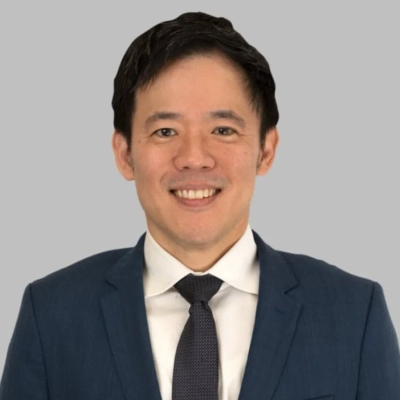17 Tips and Metrics for Defining Career Success from Professionals
We asked industry experts to share how they define success in their career, their personal metrics for measuring progress and achievements, and the advice they’d give to others who are trying to define their own career aspirations. Learn how to create meaningful impact, build an authentic career path, and measure progress beyond traditional metrics.
- Design a Career That Supports Your Life
- Track Impact, Presence, and Growth Daily
- Balance Freedom and Impact in Your Career
- Focus on Real-World Impact Over Vanity Metrics
- Build Trust and Embrace Strategic Growth
- Define Success by Long-Term Fulfillment
- Prioritize Relationships and Legacy Over Numbers
- Balance Human Experience With Measurable Outcomes
- Measure Success Through Quality and Trust
- Stay True to Values While Serving Others
- Create Lasting Impact Through Your Work
- Solve Problems That Matter to People
- Build an Authentic Path Aligned With Values
- Make a Difference for People and Business
- Earn Trust Through Client Care and Growth
- Align Your Goals With Personal Motivation
- Set Evolving Goals to Progress Forward
Design a Career That Supports Your Life
For me, success isn’t about titles, follower counts, or even revenue alone. It’s about time and freedom. I define success as having the space in my life to do meaningful work while also having the freedom to spend my time in ways that truly matter, whether that’s with loved ones, on self-care, or simply enjoying moments of calm. Success, to me, means building a career that reflects my values, uses my strengths, and provides the flexibility to create balance, rather than being tied to a constant grind.
As a therapist and wellness entrepreneur, my metrics for progress focus on how much control I have over my schedule and energy. If I’m able to help clients and reach people with resources while still having evenings free to recharge or spend time with family, that’s a clear sign I’m on the right track. I also measure success by how sustainable my pace feels — am I living what I teach by setting boundaries and protecting my time, or am I slipping back into overwork? When my work supports my life rather than taking it over, I know I’m succeeding.
My advice for others is to define success in a way that honors your freedom, not just your achievements. It’s easy to get caught up in external markers like promotions, revenue goals, or follower counts, but those can leave you feeling trapped if they don’t align with your vision of a well-lived life. Start by asking yourself: How do I want to spend my days? How much flexibility do I want to have in my schedule? What would “enough” look like for me — financially, emotionally, and personally? When your career aligns with those answers, you create a version of success that gives you both purpose and freedom — and that, in the end, is the true goal.
 Angela Ficken, Psychotherapist and Entrepreneur, Progress Wellness
Angela Ficken, Psychotherapist and Entrepreneur, Progress Wellness
Track Impact, Presence, and Growth Daily
In my experience, success isn’t a single milestone — it’s a relationship with the work itself. For me, success means waking up curious about what I’m creating and ending the day with enough energy left to enjoy the people I love.
Instead of traditional metrics like follower counts or revenue targets, I track three personal indicators. First is impact: are readers and clients telling me that something I wrote or taught genuinely helped them? Second is presence: can I move through most days without the chronic stress and distraction that used to define my career? Third is growth: am I still learning, experimenting, and refining my craft rather than coasting on what I already know?
When those three signals are healthy, I know I’m on the right path — even if the numbers fluctuate. My advice for others is to define success in language that belongs to you, not to your industry. Metrics like income or audience size can be useful, but they’re empty without meaning. Start by noticing when you feel most alive and engaged, then build goals around sustaining those states rather than chasing external validation. Careers evolve, but the habit of measuring what truly matters will guide you through every pivot.
 Lachlan Brown, Co-founder, The Considered Man
Lachlan Brown, Co-founder, The Considered Man
Balance Freedom and Impact in Your Career
I transitioned from corporate to entrepreneurship, and my definition of success has changed a lot with that transition. While previously it was all about the job title and salary, now the main aspects of my definition of success are freedom and impact.
Freedom means waking up without an alarm, deciding where, when, and with whom I want to work. Those are hard to measure, but any day I manage to do that is a successful day in my books.
In terms of impact, I track two things: the number of customers I’ve had and the number of 5-star reviews. They’re simple, but in my opinion, they’re the best evidence of the impact I have through my business. They show directly how many people I’ve supported and how many were happy with the product they received.
Freedom and impact are in line with my core values, and they drive me. So my main piece of advice for someone defining their career aspirations would be to first understand what truly matters to them, what intrinsically makes them feel like they’re making a difference, and then reverse that into metrics they can use to stay true to it and ensure they’re on the right path.
 Ana Colak-Fustin, Founder, HR Consultant and Recruiter, ByRecruiters
Ana Colak-Fustin, Founder, HR Consultant and Recruiter, ByRecruiters
Focus on Real-World Impact Over Vanity Metrics
Success, for me, has never been about the title, the money, or even the size of the company. It always comes back to impact. Am I building something that genuinely helps people? Am I proud of the team I’m working with, and are we moving in a direction that aligns with our values?
When we started building Carepatron, we weren’t just aiming to launch another healthcare platform. The goal was to make healthcare radically more accessible and collaborative. That meant measuring success not by vanity metrics, but by real-world outcomes. If I can look at the product and say this made someone’s life better, then that’s a win in my book.
As for advice? Don’t outsource your definition of success. It’s tempting to chase someone else’s version of a dream job or career trajectory, but you’ve got to get brutally honest with yourself about what actually matters to you. Not your LinkedIn network, not your university, not your parents. You. Set goals that reflect the life you want to live, not just the career you want to build.
Also, don’t wait for the perfect plan. Most careers are built through a series of experiments. Try things. Learn fast. Stay curious. And surround yourself with people who raise your standards. That’s where the real growth happens.
 Jamie Frew, CEO, Carepatron
Jamie Frew, CEO, Carepatron
Build Trust and Embrace Strategic Growth
For me, success ultimately comes down to trust. When companies like Cisco or Google turn to me to fill critical supply chain roles and then come back with more searches, that’s the clearest sign I’m creating real value. It shows the candidate is thriving, the hiring manager is satisfied, and the relationship has grown into a long-term partnership. Beyond trust, I also measure success through growth and stretch goals. That means expanding revenue, increasing team size, and taking on greater responsibilities year after year without losing sight of balance.
To me, true success is being able to point to both tangible milestones achieved and meaningful relationships built along the way. Looking ahead five years, my goal is to scale further in the supply chain recruiting space, broaden the leadership roles we support, and strengthen global partnerships with top companies. Each step should push my capabilities while creating larger opportunities and impact.
My advice to others is simple: you can have both a great career and a strong work-life balance — just not usually at the same time. Be intentional. Dedicate seasons of your life to stretching yourself, pursuing ambitious goals, and accelerating your career. Then allow yourself to shift into balance when it’s needed. Along the way, leverage LinkedIn to build your professional brand and invest in authentic relationships with recruiters in your field. Often, those connections open doors you didn’t even know were there.
 Friddy Hoegener, Co-Founder, SCOPE Recruiting
Friddy Hoegener, Co-Founder, SCOPE Recruiting
Define Success by Long-Term Fulfillment
Success isn’t about metrics or revenue, it’s about alignment, fulfillment, and lifestyle. It’s about building a business that is fulfilling, makes an impact, and can give me the flexibility and time to spend with my family. Sure, I have revenue goals, but those goals are structured around that family time and work/life balance. I measure progress and achievement by impact: am I creating systems that improve workplaces for employees, am I helping working moms navigate career growth and babies? And at the same time, am I present for my kids and bedtime stories? How is my mental health and stress and time for me? Am I able to spend time with my husband as well? If the answer is yes to all of that, then I’m on the right track. And it’s okay to adjust what you’re doing as needed.
My advice to others is to define success by what will still matter to you ten years from now, not what looks shiny today. Have your revenue goals, but ask yourself: what impact do I want to have, and what do I want my daily life to feel like along the way? Once you know those answers, you’ll measure progress by how close your career is to that vision.
 Alexa Starks, Founder, Executive Moms
Alexa Starks, Founder, Executive Moms
Prioritize Relationships and Legacy Over Numbers
For me, success isn’t just about revenue or hitting targets; it’s about building something that lasts and means something. I define success by the relationships I’ve built, the trust I’ve earned from clients, and the opportunities I’ve created for my team. My personal metrics go beyond the balance sheet: Am I helping my employees grow in their careers? Are clients coming back because they know I’ll deliver? Am I keeping my values of transparency and accountability at the heart of every decision I make? When the answer is yes, I know I’m on the right track.
My advice to others: define success in a way that feels true to you, not just what looks good on paper. Numbers matter, of course, but they’re not the whole story. Consider the legacy you want to leave, the people you aim to impact, and the type of work that inspires you to get out of bed in the morning. Use those as your accurate metrics — you’ll achieve more and enjoy the journey.
 Jared Weitz, Chief Executive Officer, United Capital Source
Jared Weitz, Chief Executive Officer, United Capital Source
Balance Human Experience With Measurable Outcomes
In my clinical experience, my definition of success is usually tied to the longer-term outcome after treatment. An example of this that sticks in my mind is a patient of mine who would lay awake at night in pain, unable to sleep, and post-root canal therapy she said today was the first day she had her first full meal in 14 days. Those moments really matter to me, but even better, they can be quantified in your study. My healing rates are routinely above 90%, less than 5% of cases require retreatment, and implant survival rates are somewhere north of 15 years, which indicates we’ve not just assumed achievement, we’ve identified and measured it.
In my opinion, any vocation is enhanced by goals that are simultaneously human and quantifiable, because both comfort and the gratitude of patients demonstrate the difference being made, while numbers validate that new methods of performing work actually yield improvements in outcomes. My recommendation is to create markers that can be quantified and experienced simultaneously, because success becomes sustainable when data and lived experience align in quantifiable and indisputable ways.
 Jonathan Wong, Owner and Endodontist, Renovo Endodontic Studio
Jonathan Wong, Owner and Endodontist, Renovo Endodontic Studio
Measure Success Through Quality and Trust
When people ask me how I define success, my answer isn’t tied to numbers or how big my business looks from the outside. For me, success is about the quality of the food I serve, the trust of my customers, and the experiences created around the table. I’ve always believed you can’t measure barbecue by how quickly you serve it — you measure it by the reaction on someone’s face when they take that first bite. When a client calls me back to cater another event because they know I’ll deliver, that’s success in my book.
My personal metrics are simple. First, the food has to be right. Every brisket, rib, and sausage I smoke has to meet the same high standard I’d be proud to put in front of my own family. Second, customer satisfaction is everything. Word-of-mouth, reviews, referrals, and repeat bookings tell me if I’m truly hitting the mark. And finally, growth isn’t just about revenue — it’s about building a reputation in the Dallas/Fort Worth community as a name people can trust for authentic Texas barbecue.
If I could give advice to others defining their own career aspirations, I’d tell them not to get caught up in comparisons. It’s easy to look at bigger operations or flashier setups and feel like you’re falling behind, but that’s not what defines your journey. Focus on what matters most to you, put integrity and passion into your craft, and measure success by the impact you leave on others. For me, every plate I serve is a chance to create a memory, to share a piece of Texas tradition, and to build a legacy. That’s what success looks like in my eyes.
 Jim Carroll, Independent Business Owner, Meat and Greet BBQ Catering LLC
Jim Carroll, Independent Business Owner, Meat and Greet BBQ Catering LLC
Stay True to Values While Serving Others
Coming from a working-class background in Sioux City, where I learned the value of honest work in my parents’ sheet metal shop, success means staying true to the values that shaped me while building something meaningful. When I left the security of working for a large insurance company in 2002 to start my firm, I defined success as creating a practice that would genuinely serve Iowa families during their most vulnerable moments — whether they’re dealing with serious injuries, family dissolution, insurance bad faith, or criminal charges that could derail their lives.
My personal metrics for progress have evolved over the past two decades. Initially, it was simply staying afloat as a solo practitioner and proving I could effectively advocate for clients against well-funded opposition. Now, I measure success by the depth and breadth of our impact: we’ve grown to eight trial attorneys who collectively represent thousands of Iowans, but more importantly, we’ve maintained our commitment to personalized service and aggressive advocacy. I track not just case outcomes, but whether we’re helping clients rebuild their lives after legal crises. The ultimate measure is whether someone’s children have a better future because we fought for their family when it mattered most.
I encourage aspiring attorneys to define success for themselves, rather than relying on the metrics promoted by law school career offices or legal industry rankings. Find work that aligns with your core values — for me, that was the work ethic and commitment to helping others that my parents instilled. Don’t be afraid to take the unconventional path if it serves your vision. Most importantly, remember that legal careers are marathons, not sprints. Build relationships, develop expertise, and focus on serving your community well. The recognition and financial success will follow naturally when you’re doing work that truly matters to you and the people you serve.
 Andrew Hope, Attorney & Founder, Hope Law Firm
Andrew Hope, Attorney & Founder, Hope Law Firm
Create Lasting Impact Through Your Work
Success in my career isn’t measured by job titles or revenue figures, but by the lasting impact I create through my work. When my content helps a brand increase its visibility or when a personal branding strategy empowers someone to pursue new opportunities, that’s what I consider genuine success.
I rely on three key metrics to measure my progress:
First, have client outcomes improved? Has their business grown as a direct result of our implemented strategy?
Second, consistency: am I regularly publishing valuable content across various platforms?
Third, personal growth: am I continuously learning new skills, experimenting with different formats, and staying relevant as our industry evolves?
If you’re defining your own career aspirations, I recommend building metrics around what you can control and what truly matters to you personally. External validation will fluctuate, but when your goals center on impact, consistency, and growth, you’ll have clear indicators that you’re moving in the right direction.
 Bhavik Sarkhedi, Founder & CEO, Ohh My Brand
Bhavik Sarkhedi, Founder & CEO, Ohh My Brand
Solve Problems That Matter to People
Success is about impact, not just titles or salary. The real measure of progress is how the work you do improves lives, empowers teams, and drives meaningful change.
When we first introduced an AI-powered decision-support tool for clinicians, we focused heavily on building the most accurate technology. But the real challenge, and what I hadn’t fully anticipated, was getting doctors to trust and use it. We had to pivot from just offering a technical solution to ensuring it was integrated into their daily workflows seamlessly.
This shift in focus paid off. After adjusting the platform to make it more intuitive, usage among clinicians increased by 40%, and we saw a 20% reduction in decision-making time. These results translated to faster patient throughput and higher overall satisfaction from both clinicians and patients.
My advice for anyone defining their career: focus on solving real problems. In healthcare, it’s not enough to build something ‘cool’ or technically impressive. Your career progress should be measured by the real-world impact you make, whether it’s improving patient care, simplifying processes, or empowering your team.
In any field, your career will be most fulfilling when you connect your work to tangible outcomes. Stay adaptable, keep learning, and never forget that technology should serve people, not the other way around. Your success will follow naturally when you focus on solving the problems that matter.
 Riken Shah, Founder & CEO, OSP Labs
Riken Shah, Founder & CEO, OSP Labs
Build an Authentic Path Aligned With Values
Success has never been just about climbing a ladder; I feel like it’s about whether the work I’m doing feels meaningful and whether I’m growing along the way. I know I’m moving in the right direction when I can look back and see that I’ve made a real difference for the people I work with, whether that’s a colleague, a client, or even someone who just took inspiration from something I shared. Progress shows up in the moments where I’m challenged, learning something new, and still excited about what’s ahead.
If I could give advice to anyone trying to define their own path, I’d say this: make sure your definition of success is yours, not something borrowed from what others expect. It’s easy to measure yourself against promotions, money, or recognition, but those things don’t always bring fulfillment. Think about the kind of impact you want to have, and what kind of life you want to build around your work. When your career is in harmony with your values and your vision for yourself, that’s when success really feels authentic.
 Lysakowska Maria Izabela, Global Country Manager, Financer.com
Lysakowska Maria Izabela, Global Country Manager, Financer.com
Make a Difference for People and Business
As an HR professional, my metric is how employees feel valued and seen. When employees feel connected and engaged, that is a success. My measure also includes engagement survey scores, retention, and participation in recognition programs. Those metrics tell me if the culture that we are building is being successful. As a senior business advisor, my measure of success is making a difference for my clients and helping them see results. Better relationships with their people or higher customer loyalty may be that. I know my work is a success when companies invest in meaningful rewards and experiences that produce genuine business results.
I focus on three main areas:
-
Did I encourage a team to develop a better culture?
-
Did I ask leaders to reward their employees meaningfully?
-
Was my advice generating a measurable impact for a business?
These are the signs that reassure me that I’m making a difference. Titles and awards are less significant than real people and business impact.
As you consider what you want to be in your career, think about the value that you provide. Ask yourself: how do people, groups, or companies benefit from my work? Think about what you leave behind and not what you are called. When what you do makes others’ experiences better, that is real success.
 Charly Huang, HR Expert and Senior Advisor, AceBallMarkers
Charly Huang, HR Expert and Senior Advisor, AceBallMarkers
Earn Trust Through Client Care and Growth
For me, success in my real estate career isn’t just measured by the number of homes I sell or the volume of transactions. True success comes when my clients feel supported, informed, and genuinely happy with the outcome of their home sale or purchase. A smooth closing is important, but the real achievement is when clients refer me to friends or come back years later for their next transaction; that tells me I’ve earned their trust.
Personally, I measure progress through a few key metrics. Client satisfaction and referrals are at the top of that list. I also track how much I’ve grown year over year, not only in sales but in the systems I’ve built, the relationships I’ve strengthened, and the new skills I’ve developed. Success is also about building a team and a brand that reflects professionalism, integrity, and care, something bigger than just myself.
My advice to others defining their own career aspirations is this: don’t measure your success only by external numbers or titles. Take the time to define what truly matters to you, whether it’s freedom, financial stability, recognition, or making a difference in people’s lives. In my opinion, when your goals are aligned with your values, you’ll stay motivated through challenges and find more fulfillment in the long run.
 Jack Ma, Real Estate Expert, Jack Ma Real Estate Group
Jack Ma, Real Estate Expert, Jack Ma Real Estate Group
Align Your Goals With Personal Motivation
My definition of success focuses on creating continuous progress rather than pursuing titles or media attention. The real success indicators I track include the development of meaningful work, team motivation, and client retention rates. These three factors represent my actual performance metrics. A win for me occurs when our initial startup client returns as a successful Series A company. The achievement brings revenue benefits and proves our ongoing value to their expanding business.
Your path to success should focus on your personal definition rather than following what others consider successful. Want to freelance from Bali? Cool. The pursuit of becoming a CMO chair represents another acceptable goal. Determine your genuine motivations and construct a framework that supports them. Your efforts will become meaningless when you pursue goals that do not align with your true desires.
 Vincent Carrié, CEO, Purple Media
Vincent Carrié, CEO, Purple Media
Set Evolving Goals to Progress Forward
I would simply define success as accomplishing my goals. That sounds pretty simple, and truthfully it is. The reality is that over the years, as I have progressed through my career path, my goals have changed and evolved quite a bit. I don’t just have one big goal that I hope to accomplish one day and then call it quits. Instead, I always have a goal (or a few), and once I accomplish it, I start progressing toward a new goal. This keeps me moving forward, always, while still appreciating my hard work and wins along the way.
 Rassan Grant, Founder, Norstone
Rassan Grant, Founder, Norstone







